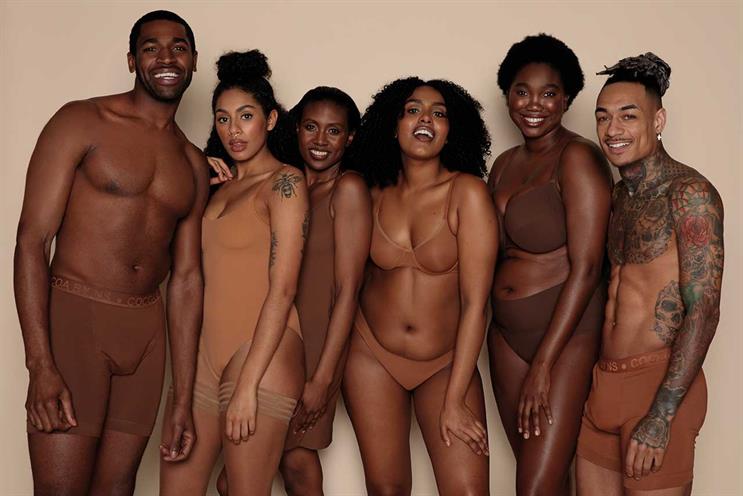
Nubian Skin has scooped City Hall and Transport for London’s competition aimed at improving black, Asian and minority-ethnic diversity in advertising.
The win means the fashion brand, which specialises in nude underwear and hosiery for people of colour, receives £500,000 of advertising on the TfL estate.
Ade Hassan, founder of Nubian Skin, told ±±ľ©Čüłµpk10: "To have an opportunity like this is phenomenal." She added that, as Nubian Skin had just moved to a direct-to-consumer model, the win "could not have come at a better time".
The winning work uses the tagline: "A different kind of nude."
TfL's competition, now in its second year, was designed to tackle tokenism, combat stereotypes and make advertising in London more representative of the capital’s ethnic diversity. Working with TfL’s media partners, Global and JCDecaux UK, the competition called on brands to create ads that offered authentic portrayals of London’s BAME communities.
Judges included British Vogue publishing director Vanessa Kingori – who is in conversation with WPP's Karen Blackett in the latest issue of ±±ľ©Čüłµpk10 – along with Engine Creative chief executive Ete Davies and R/GA creative director Dayoung Yun.
Davies said of the work: "I think it’s going to be arresting; it will spark the debate around underwear and nude, but also it will start to represent minority groups in a bit more of an authentic way and create a little bit of those human connections that now more than ever our society needs."
Community football programme Grassroots for Good was awarded the runner-up prize of up to £50,000 worth of digital advertising space. Its campaign celebrates the power of grassroots sport. It will go on display across the TfL network later this year.
Chris Macleod, TfL’s customer director, added that both his organisation and City Hall wanted to show that the network is "open and fair".
"I hope this [Nubian Skin] campaign, along with the others, acts as a catalyst to encourage widespread positive change throughout the industry," he said.
Last year, the competition focused on gender and was framed as a challenge to advertisers to make representation of women less uniform. It was won by Holland & Barrett for its work aimed at breaking the social stigma around the menopause.




.jpg)
.jpeg)
